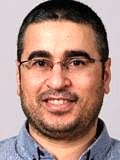Sub-Project 6
Islamic Sermons: Source of Radicalization or its Antidote?
Islamic sermons are in Germany by the public often regarded as a source of radicalisation. Muslim associations, on the other hand are seen as their antidote. Despite their importance for the life of the Islamic faith – attending a friday sermon is a religious obligation for Muslim men – so far, Islamic sermons have hardly been researched scientifically, even in a global context, but have rather been the subject of journalisitic representation.
This sub-project aims to address the necessary socio-political debate and the complexity of the topic by means of a systematic, methodological and interdisciplinary scientific analysis of the Friday sermons. In this way, the problems associated with this can be better understood and reformed (with Islamic theologians, imams and Muslim associations) can be carried out in relation to their content.
Themes, forms an references (Koran, prophetic tradition, Islamic theology, etc.) Islamic sermons in Germany:
- To what extent do “normal” and Salfist sermons differ with regard to the thematisation of radicalisation and violence?
- How do imams and preachers use religious texts to educate and influence the Muslim community religiously-morally and theologically, but also possibly to promote extremism?
- Do preachers exploit the growing gap between the religiously required and the socially valid values in order to irritate (especially young) Muslims and then offer support and guidance in radical positions?
In the context of the project “Islam in Bavaria” (Bavarian Academy of Sciences, 2015-18), EZIRE was able to collect nearly 100 Salafist sermons. This stock is to be enlarged by the collection of further “normal” sermons published by the Muslim associations DITIB, IGMG and VIKZ as well as by the Turkish religious authority Diyanet and brought together in a systematically indexed sermon archive. This archive of sermons will be made publicly available at the end of the project.
The regular recording of sermons in mosques of the above-mentioned associations (mainly in the metropolitan region of Nuremberg, on a random sample through cooperation partners also nationwide) is to enable a comparison with the sermons published in writing by the same associations and to investigate whether the sermons specified by the associations nationwide are actually held (or whether, e.g., imams and preachers fall back on the predefined sermons of the Turkish Diyanet). In addition, it is systematically examined whether the Turkish and German versions of the respective Friday sermon differ.
In focus group interviews with Muslims and Islamic theologians, excerpts from sermons will be put up for discussion in order to be able to develop targeted recommendations for action for Muslim associations and politicians at the end of the project.
Project Leader
We could not find any entry with the given search term 981.
Research Assistant
We could not find any entry with the given search term 12598.
Advisory Council
Student Assistant
Hannah Lenk
